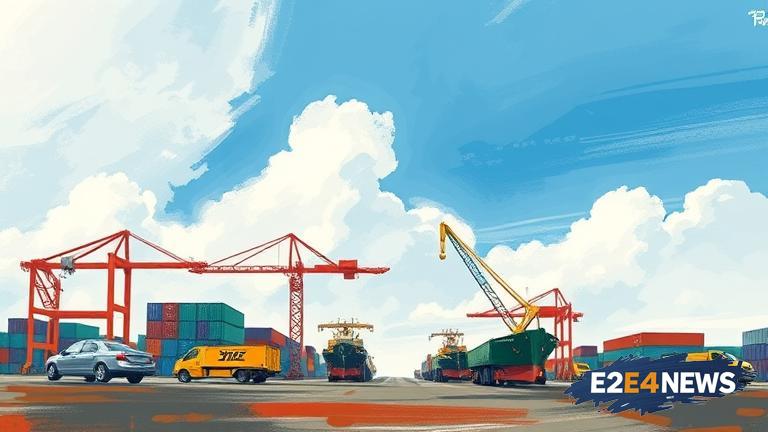The ongoing trade tensions between India and the US have sparked concerns about the impact on the Indian economy. With the US imposing tariffs on various Indian products, India is under pressure to respond effectively. According to a leading economist, India can negotiate with the US, but it will have to offer significant concessions to secure a favorable deal. The economist has laid out a blueprint for India to master Trump’s tariff playbook, emphasizing the need for a strategic approach. India’s exports to the US are substantial, and any disruption to trade could have far-reaching consequences. The US has already imposed tariffs on Indian steel and aluminum, and there are fears that more products could be targeted. The Indian government has responded by imposing retaliatory tariffs on US goods, but this may not be enough to deter the US from further action. The economist suggests that India should focus on negotiating a comprehensive trade agreement with the US, rather than relying solely on retaliatory measures. This would involve offering concessions on areas such as market access, intellectual property, and investment. India could also consider offering to increase imports from the US, particularly in areas such as energy and defense. Furthermore, the economist recommends that India should engage in diplomatic efforts to build support from other countries and international organizations, such as the WTO. This could help to isolate the US and put pressure on them to reconsider their tariff policies. Additionally, India should focus on diversifying its trade relationships, reducing its dependence on the US market. This could involve strengthening ties with other countries, such as those in the EU and ASEAN. The economist also emphasizes the need for India to improve its trade infrastructure, including its ports and logistics systems. This would help to increase efficiency and reduce costs, making Indian exports more competitive in the global market. Moreover, the economist suggests that India should consider offering incentives to US companies to invest in India, such as tax breaks and investment subsidies. This could help to attract more US investment and create jobs in India. The Indian government has already taken steps to improve the business environment, such as introducing the GST and simplifying regulatory procedures. However, more needs to be done to address issues such as corruption and bureaucratic delays. The economist concludes that India has the potential to navigate the challenges posed by Trump’s tariff policies, but it will require a strategic and proactive approach. By negotiating effectively, offering concessions, and diversifying its trade relationships, India can minimize the impact of US tariffs and secure a more favorable trade agreement. The Indian government should also focus on building support from other countries and international organizations, and improving its trade infrastructure. With the right approach, India can emerge from this trade dispute in a stronger position, with a more diversified and competitive economy. The economist’s blueprint provides a clear roadmap for India to follow, and it is now up to the government to take the necessary steps to implement it. The outcome of this trade dispute will have significant implications for the Indian economy, and it is essential that the government gets it right. The US is a major trading partner for India, and any disruption to trade could have far-reaching consequences. However, with the right strategy and approach, India can navigate these challenges and secure a more favorable trade agreement. The economist’s recommendations provide a clear way forward, and it is now up to the government to take action. The Indian government should prioritize negotiation and compromise, rather than relying solely on retaliatory measures. By working together with the US and other countries, India can secure a more favorable trade agreement and minimize the impact of US tariffs. The economist’s blueprint provides a clear roadmap for India to follow, and it is essential that the government takes the necessary steps to implement it. The outcome of this trade dispute will have significant implications for the Indian economy, and it is crucial that the government gets it right.
